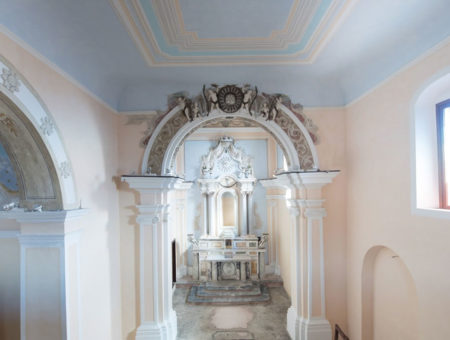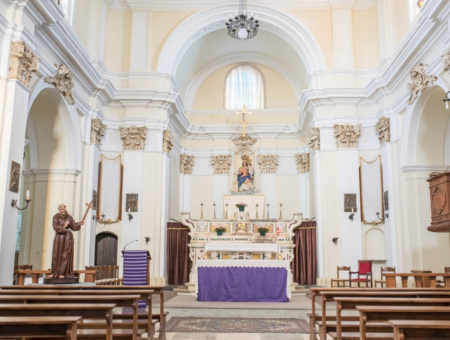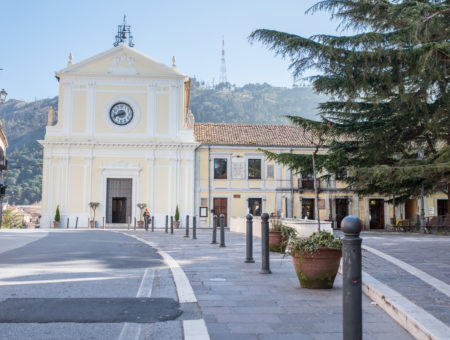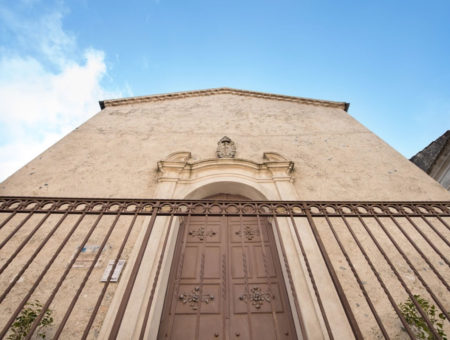
Church of Holy Mary of Grace
XVI century
Built during XVI century, the church was an integral part of the convent of the Dominican Friars.
The internal architecture shows a single nave with a series of chapels with altars on both sides.
In the mid-point, right in front of the apse, we find the main altar; it is decorated with fine stucco interiors imitating the precious marble decorations typical of the Neapolitan Baroque.
The side chapels are separated by pilasters, surmounted by stucco capitals in Ionic-Corinthian style, which support the triumphal arches. The altars of the minor chapels emulate the main altar emerging from the central point of the church.
The main façade is surmounted by a triangular pediment and enriched with complex stucco decorations, work of the stucco masters from Miglierina at the end of 19th century.
The entrance portal is decorated with an impressive frame in Neoclassical style.
The lower part of the façade is decorated with pilasters whose capitals support a complex entablature of bands and strips; on top of that lays the partition, where the clock is embedded inside a delicate circular floral frame.
On the sides of the clock we find two statues, respectively representing Charity and Temperance.
Among sacred furnishings, the church keeps several statues made of wood and papier-mâché, including the delicate wooden statue representing Holy Mary of Grace and the one made of papier-mâché representing Our Lady of Mount Carmel.




